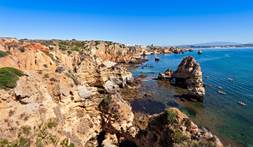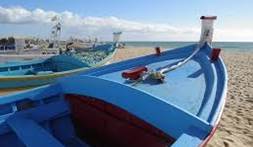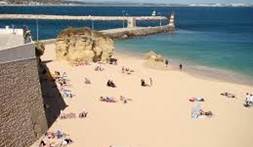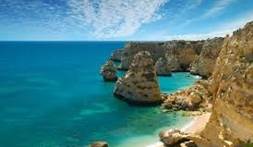Information
LAGOS
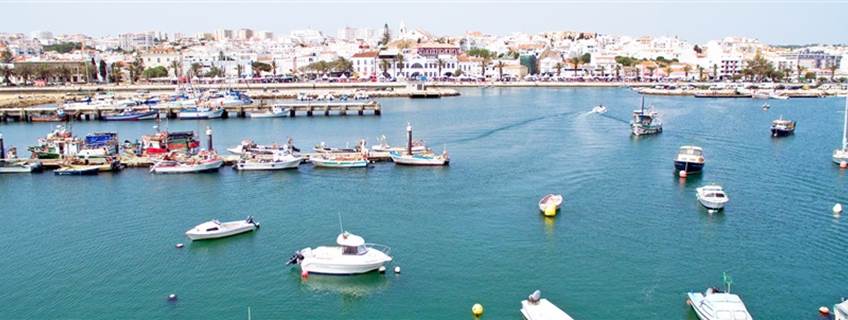
Lacóbriga – Zawaia – Lagos
Called Laccobriga or Lacóbriga, the first town in the Lagos region was founded around 2000 BC. It was later occupied by Carthaginians, Romans, barbarian peoples, Muslims (almost five centuries) and finally regained by Christians in the thirteenth century. Zawaia was the arabic name.
From the century XV, Lagos has historically been associated with the Portuguese Discoveries, due to its location and economic importance.
In 1573, it was elevated to the city by King D. Sebastião, becoming the capital of the Kingdom of the Algarve.
In 1755, it was devastated by the tsunami that also destroyed Lisbon. At that time, the provisional capital moved to Loulé and then to Faro.
Lagos is one of the most beautiful cities in Western Algarve
With some of Europe's most beautiful beaches, some of the continent's top golf courses, magnificent cliff scenery, fantastic grottoes, and warm year-round climate, it was inevitable that Lagos would become one off the country's most popular travel destination.
Glorious history of Lagos
The glorious history of Lagos has always been connected to the sea. Due to its location in front of the African Coast, it was from this city port that the Portuguese Caravels left to discover new worlds to the world. And when they returned, with the gold, silver, ivory and spices it was also to Lagos. This richness is visible in the many monuments, churches and houses of the sixteenth and seventeenth centuries.
Relaxed atmosphere and quiet charm
Until today Lagos has kept its cosmopolitan flair, responding to the challenges of modern times while respecting the heritage of the past. This city kept in harmony, its history and traditions and, in the last years of the twentieth century, became the touristic city known for its beautiful beaches, traditional houses and culture.
The touristic city full of culture
You will love to visit or stay here, where you can discover its history and narrow streets and at the same time the beautiful beaches (the breathtaking golden rocks of the Costa d'Oiro, Dona Ana beach, are one of Portugal's most photographed motif, rocks like Dona Ana beach) or the long and open sandy beach of Meia Praia.
But Lagos has much more to offer: a rich cultural scene, some of the best Algarvian gastronomy, manifold outdoors activities and traditional handicraft.
